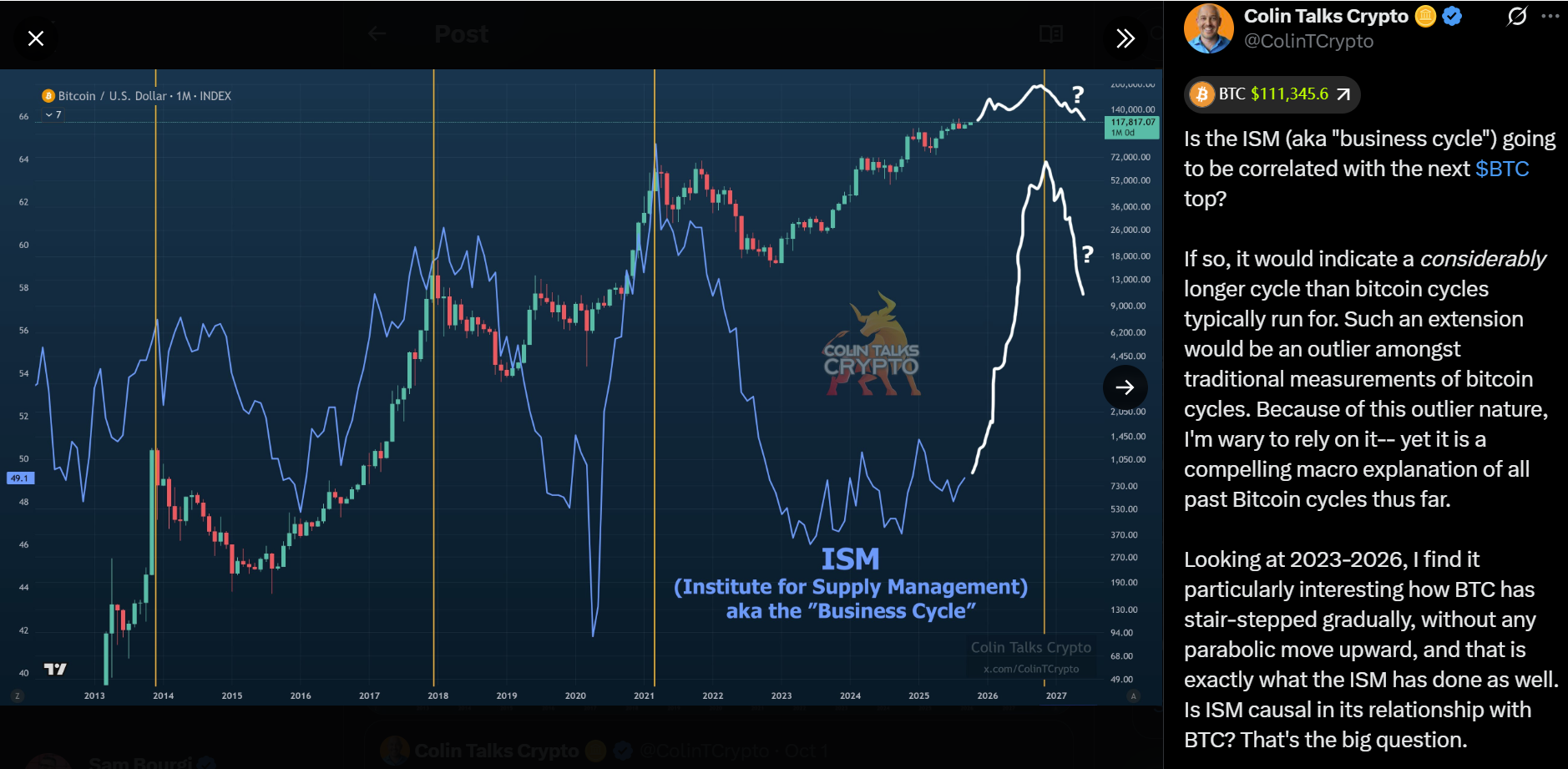
ISM Manufacturing PMI Indicates Potential Lengthening of Bitcoin Market Cycle
Analysis reveals that Bitcoin's market cycle may extend beyond usual durations as ISM manufacturing data remains weak, suggesting a slow economic recovery.
The Institute for Supply Management (ISM) Manufacturing Purchasing Managers’ Index (PMI) has historically matched significant peaks in Bitcoin’s market cycles, and this correlation could indicate that the current cycle may last longer than usual.
The association between the ISM PMI and Bitcoin’s price, referenced by macro-oriented crypto analysts including Raoul Pal from Real Vision, has become increasingly relevant.
“All three previous Bitcoin cycle peaks have generally corresponded with this monthly, oscillating index,” noted analyst Colin Talks Crypto, pointing out the consistent overlap between Bitcoin’s market highs and the PMI’s cyclical peaks.
Translation: “All three previous Bitcoin cycle tops have broadly aligned with this monthly, oscillating index.”
Colin further stated, “this suggests a considerably extended cycle compared to typical Bitcoin durations.”
Translation: “If that relationship holds, Colin added, ‘it would indicate a considerably longer cycle than bitcoin cycles typically run for.’”
The ISM Manufacturing PMI, an indicator of U.S. industrial activity, has hovered below the neutral mark of 50 for seven straight months, indicating economic contraction. An upward movement past the 50 mark would imply economic revival, traditionally linked to enhanced Bitcoin price movement.
Earlier in the year, the PMI managed to exceed 50 briefly but fell back into contraction, highlighting the ongoing fragility in the manufacturing sector.
 ISM Manufacturing PMI
Source: Colin Talks Crypto
ISM Manufacturing PMI
Source: Colin Talks Crypto
And by maintaining a contraction atmosphere, ISM has indicated that this scenario doesn’t necessarily predict a recession, as past data shows that a consistent PMI above 42.3 generally aligns with growth in the broader economy.
A purchasing manager from the transportation equipment sector commented in September that business remains severely impacted by declining profits and high tariff costs increasing across the supply chain.
“We are forced to raise prices by as much as 20 percent to offset the increased costs due to tariffs,” they explained.
Translation: “We have increased price pressures both to our inputs and customer outputs as companies are starting to pass on tariffs via surcharges, raising prices up to 20 percent.”
Related articles: Bitcoin treasuries can earn more Bitcoin, says Willem Schroé


